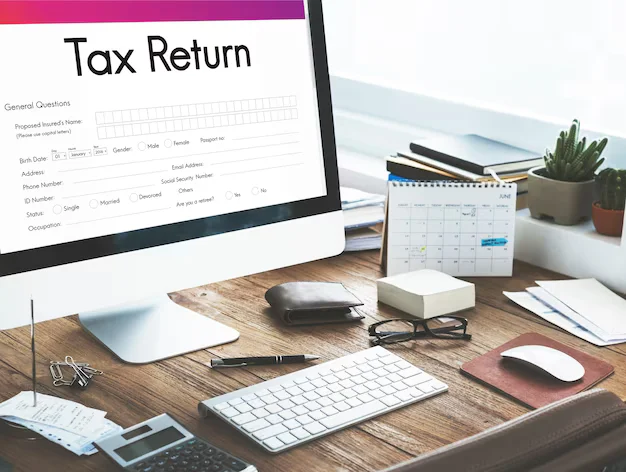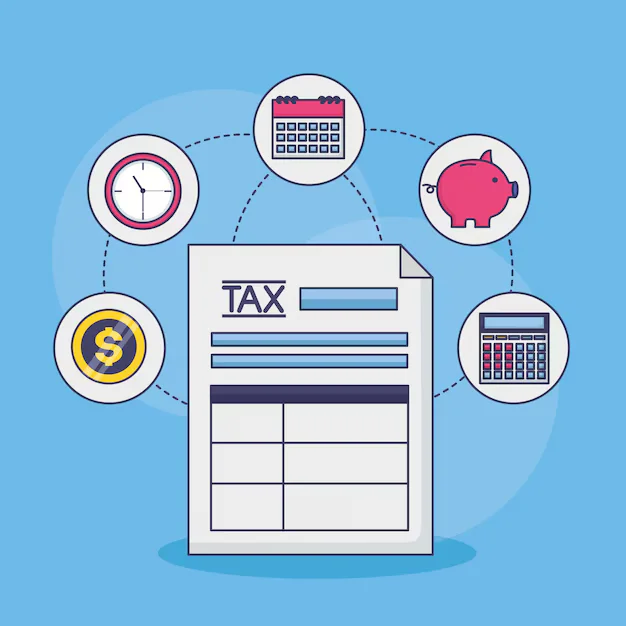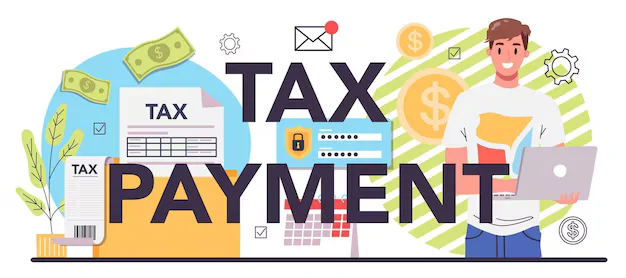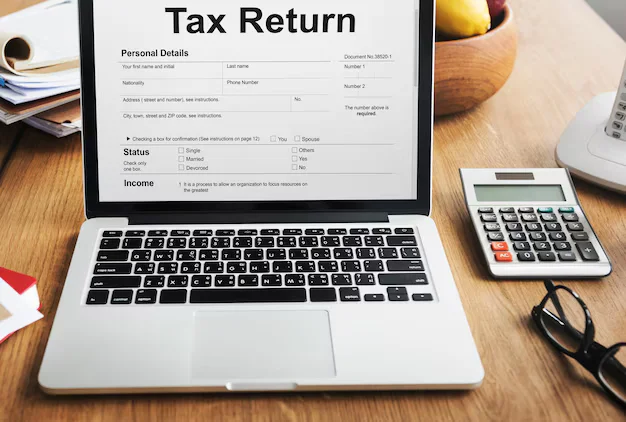How to understand the difference between tax refunds/tax returns?

Tax refunds/tax returns are similar tax terms that most people usually misunderstand. However, understanding the difference between them can significantly add to your tax savviness and overall personal financial management.
Even though both tax terms appear alike, there is a considerable difference between them when considering tax seasons and filing.
In this article, we will detail everything you need to help you understand the difference between tax refunds/tax returns. Keep reading for more information about how to understand the difference between tax refunds and tax returns!
Tax refunds/tax returns: understanding the difference
Tax refunds/tax returns: understanding the difference can significantly impact your financial education and tax liability, especially during tax years with major tax hikes and if you want to understand the difference between two things or concepts, your best bet is to look into their features.
Also, you might want to know how they work and compare their functionality and utility. In the same way, gaining clarity on tax refunds/tax returns requires detailed information about their features.
This way, you can determine what counts as tax refunds and what matters as tax returns. You will also know what to do when you file taxes and what to expect from the IRS.
Even if the difference between these two concepts is rather simple to grasp, there are still a lot of people that find it hard to identify what tax refunds and tax returns are.
That’s the reason why our tax professional has developed a simple, seamless guide filled with tax forms to help moderate income households better understand each tax credit, particularly the earned income tax credit and the child tax credit.
That will help you identify what each one of these ideas means, and what you can do in order to properly manage your taxes. Hiring a finance professional can help, but you also want to have a good understanding of these financial concepts and what they do.
Tax refunds/tax returns-What are tax refunds?

A tax refund is any money you receive from the government, typically through direct deposit, because you have paid more taxes than you should, demonstrating an additional tax liability from the previous federal tax returns period.
It is like reimbursement for overpaying your income taxes (tax return). Interestingly , according to the IRS, more than two-thirds of Americans get tax refunds, often benefiting from refundable tax credits like the premium tax credit, which is accounted for on their tax bill.
Even though receiving a large tax refund sounds exciting, you are better off ensuring that your employer withholds the correct amount to avoid overpaying taxes, thus preventing the issue of a surprise tax bill.
The reason is that tax refunds do not yield any financial interests for you. Instead, it means that you gave the government an interest-free loan. The big catch here is that the amount that remaining credit adds could have boosted your cash at hand if not tied up in a tax refund from capital gains reported on federal tax returns.
What's more, you are in a better position to swiftly attend to your needs when you avoid overpayment of your taxes.
There are times when you overestimate how much taxes you want to pay, and that’s normal. You always want to assess exactly how many taxes you can get and also how you want to pay. Will there be situations when you estimate more than you should? Of course.
And that’s where tax refunds come into play. The government ensures taxpayers receive their entire refund if they have overpaid, often alerting them via the refund hotline about their refund status.
However, in most cases, it will usually be in the form of removing that amount from your next filing, as you rarely get your money back directly.
While tax refunds are an option, it’s a lot better if you just don’t overpay your taxes. If you do that, you are in a better situation.
However, if it does happen, then you will have a tax expert in there ready to help you with the assistance and guidance that you may need. It’s a great idea to consider, especially if you’re thinking about conserving your funds and not overspending.
Understanding how tax refunds work?

If you are eligible for a federal tax discharge, the Internal Revenue Service will usually pay you by mailing a refund check to you, taking into account your filing status and tax payments made throughout the tax year. Alternatively, a direct bank transfer works just as efficiently, especially when managing tax deductions and ensuring you owe no taxes.
However, it is important to note that federal tax refunds only apply to individuals who have made sufficient tax payments and potentially overpaid taxes during the past two tax years. Using tax software, you can directly file online for a federal tax refund, ensuring you leverage any available tax credits to reduce your liability if you've provided the IRS with enough taxes through your employer's system and request a direct deposit.
Typically, the federal tax refund, influenced by your filing status and tax year, can take a few weeks from when the tax preparer files your tax returns. But, there are also a few exceptional cases when your tax refund might take longer than usual.
Is this important? What you will notice is that depending on when you file, it might take a lot more time to receive a refund. A good example is when you file in the middle of the tax season.
There’s a lot of stuff to process at that time, when you file during the peak of tax time, your tax preparer must navigate through extensive itemized deductions and standard deductions, which can delay your refund check. All of these things need to be something to consider, especially if you want your refund faster.
Examples of situations that get you a tax refund
Besides overpaying your taxes the previous year, other situations worthy of a tax refund exist. Here are a few conditions that mean you're getting a tax refund.
-
When you mistakenly complete the IRS form W-4, which dictates how much tax your employer withholds from your employee's paycheck or paystub, adjustments may be necessary to ensure you don’t owe more taxes.
-
You forgot to update your personal information on your Form W-4, like childbirth that qualifies you for child tax credits.
-
A 1099 holder or self-employed individual might overpay to prevent surprise tax bills, especially if they've not accounted for small business accounting or retirement accounts adequately during the tax year.
-
You are eligible for refundable tax credits, which can significantly reduce the taxes you owe, especially if charitable donations or additional child tax credit are involved.
Tax refunds/tax returns-What are tax returns?

When you file a document with details about your incomes, expenses and other relevant financial information, that's your tax return. Essentially, you are supposed to file your tax return with a tax authority like the IRS, for instance. Your tax return is crucial for accurately calculating your tax payments and schedule your payment, ensuring that you utilize tax software to manage itemized deductions and track how much tax you actually owe.
By using tax software to manage your tax payments throughout the tax year, you are less likely to fall short of enough taxes due, ensuring you don’t unexpectedly owe in taxes.
Additionally, maintaining accurate tax returns and itemized deductions is crucial for eligibility in claiming a federal tax refund if you have overpaid, considering your standard deduction and tax credits that reduce your overall liability. A tax return is not equal to tax refunds, as you can see it’s a mandatory action and filing every one of us needs to do. If you generate any income, you have to file your tax returns.
While its name seems very similar to tax refunds, returns are not the same. It’s far from that, and it’s one of those things that you do want to think about.
Filing your tax return is an annual necessity, especially if you have income from various sources, which could range from an employee's paycheck to small business accounting activities, all affecting your filing status and tax payments.
If you are employed, your employer withholds tax payments from your employee's paycheck, adjusting your filing status and tax deductions accordingly, which simplifies your annual tax returns preparation. However, if you are working on your own, then a tax return is going to be mandatory every year.
You should always ensure that you keep a tab on your expenses and general costs. Doing that is going to help because it saves time, and you will also have proof of all your costs. That’s always going to work, because it gives you the info you need to complete those tax returns.
In addition, there can be some issues that sometimes appear due to tax issues. Keeping thorough records, especially during tax time, helps streamline the process, reducing the chances that you owe more money and ensuring you receive every dollar of your refund check for any overpaid taxes.
To help you understand how tax refunds/tax returns differ, you need to know how tax returns work. Here is how!
Understanding how tax returns work?
Your tax return is essentially a document provided by the tax authority of the state or county within which you are a resident. This tax document carries all your earnings and the metric for determining your tax bills, including withholdings.
As far as the IRS is concerned, there are many variations for tax returns depending on how you earn. For instance, if you are employed, you will likely fill a form 1040 and a form 1099 for self-employed individuals.
Final Thought
Tax refunds/tax returns are nearly two aspects of the same financial scenario, where you can't expect a refund amount if you owe taxes and have not filed your tax return. So, as you fulfill your obligation through your tax returns, the government potentially returns any excess via tax refunds, ideally through direct deposits to safeguard against identity theft.
While some argue that tax refunds may not be beneficial as they reduce disposable income, others view them as a sort of forced savings plan, enhancing their tax planning strategies. As a result, they intentionally exceed their payment on tax returns and look forward to substantial tax refunds later.
Grasping the concepts of tax refunds and tax returns is crucial, as this knowledge underpins many tax planning strategies and can help reduce the chances of identity theft. For novices in finance, these concepts can seem daunting, yet understanding them is key to optimizing tax credits reduce liability and securing refund amounts through direct deposits.
But as you learn more and more, the notions open up, and you get to learn the ins and outs. Starting with tax ideas and features is always going to help you understand how you can manage your taxes, and also how to make the most out of them.
FAQS:
Does everyone get a tax refund?
Everyone gets a tax refund if they file their tax return. While some people may benefit from tax refunds through credits, a filing is essential to be eligible for a tax refund. The reason is that a filing signifies a previous overpayment for which the filer must be reimbursed.
You must be eligible for a tax refund if you want to receive one, otherwise you won’t get it. And in the end, it’s one of those things that you really need to consider
Why do I never get a tax refund?
If you do not get a tax refund, there are chances that you did not file or did not put out your tax returns. Therefore it means that you did not overpay or did not have any withholdings on your taxable income. In addition, if you are unemployed and didn't get tax refunds, you did not withhold your unemployment income.
How do I know if I owe the IRS?
Generally, the IRS site provides an individual tax account with secure login. Therefore, you can log in at any time to know how much you owe the IRS. Besides, the personal accounts give information about your balance and 18 months of your payment history. This way, you can stay current on your tax information and better handle your tax refund/tax return situations.
BLOG POST FAQ
Can I Use PayStubsNow To Create A Paystub During The Tax Season?
Absolutely! PayStubsNow provides a convenient, easy-to-use way to help you create a paystub anytime during the year, including tax season. It can serve as a vital piece of documentation when filing your tax returns or if you're required to show proof of income. Keep in mind, though, that it's essential to understand the difference between your tax returns and tax refunds, as this can significantly affect your financial planning.
How Can I Accurately Calculate The Imputed Income On My Paystub Using A Paystub Creator?
With a reliable paystub creator like PayStubsNow, you can easily calculate your imputed income. This digital tool automates the computation for various types of income and deductions, including imputed income. Simply input the necessary data and the paystub creator does the math for you. It's a convenient and precise method to manage your earnings records. For further assistance, you can reach out to our support team.
Can I Use A Paystub Generator To Accurately Calculate My Tax Returns And Tax Refunds?
Yes, indeed. A paystub generator can be incredibly useful when it comes to managing your taxes. It can provide an accurate breakdown of your earnings, deductions, and taxes, thus making the tax filing process much smoother. It's important to keep in mind, though, that a paystub generator only provides data based on the information inputted, so to ensure an accurate tax return and refund calculation, correct and detailed data is essential.
How Can A Pay Check Stub Maker Help Me Understand The Relationship Between Tax Returns And Tax Refunds?
Utilizing a pay check stub maker can greatly simplify the process of understanding tax returns and tax refunds. These tools provide you with a breakdown of every deduction on your earnings, including local, state, and federal taxes. By evaluating this breakdown, you can gauge how much you've paid throughout the year and how this could relate to your potential tax refund. A pay check stub maker is a straightforward way of keeping track of your income and taxes paid, crucial elements in understanding tax returns and refunds.

